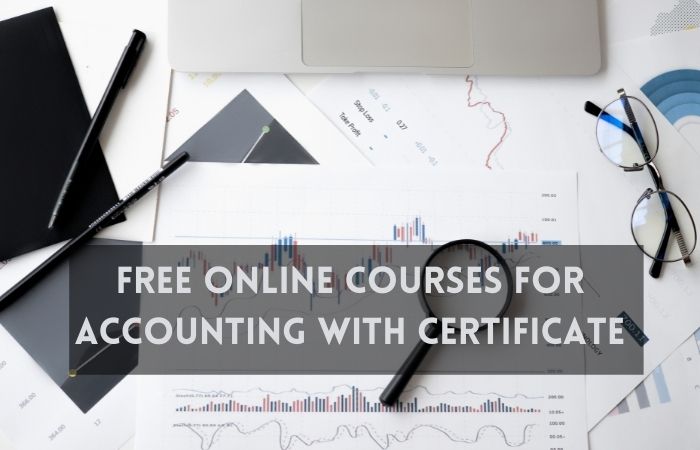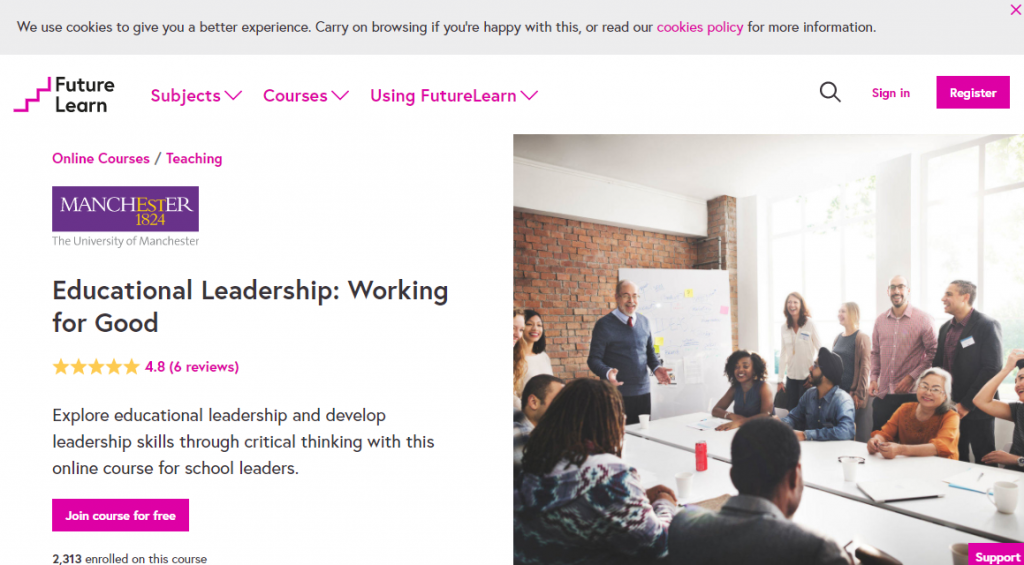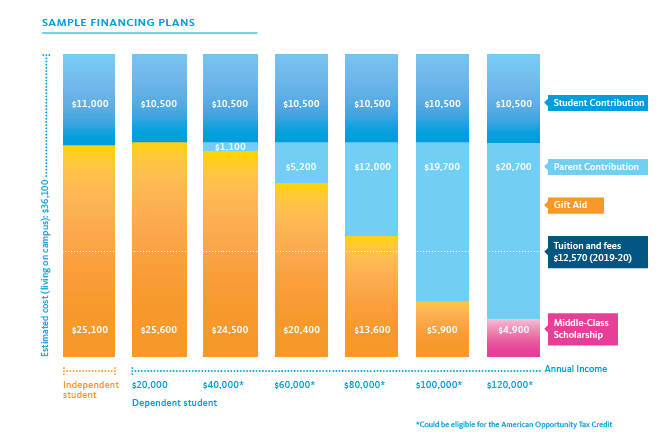
Online courses for educators can be a great way to increase your knowledge and skills. There is a greater demand for educators than ever before, and an online course that you can take free of charge can help you reach your goals. These courses can also be used to help educators improve their skills for teaching in remote areas. Here are a few places where educators can find free online courses:
TAP Online
TAP Online offers free online courses to educators. It is designed to improve educators' classroom practices. It offers courses for educators, paraprofessionals, guidance counselors, school administrators, and other school staff. You can choose from courses covering everything, including how to manage crises and connecting with local service providers. These courses can be used by educators from all walks of life.
TAP Online offers a wide range of free courses that can be used to teach educators about leadership, psychology, and educational technologies. Many of these courses have been created for educators. They can be completed in your own time. These courses provide a way to expand your knowledge while still teaching.
FutureLearn
FutureLearn can be a great resource to educators who are looking for ways to make engaging educational content. You can choose from a variety of plans depending on the budget. You can also search for a class using the search function. FutureLearn also has a commenting feature where you can ask questions and get guidance from instructors.

FutureLearn offers an online education community that has a global reach. These courses are accessible 24/7, and can be completed from anywhere that has an internet connection. FutureLearn also offers certificates which you can use in the real-world.
KQED Teach
KQED Teach offers online courses that are free for educators. These courses help learners understand different perspectives and encourage critical thinking. They offer audio, video, and other resources for more in-depth learning. KQED is aligned with the public radio station KQED in San Francisco.
The courses will teach media literacy, and how to use it in class. Students will learn how multiple media formats and sources can be used to create and edit multimedia. They will also learn the impact of different media on teaching strategies. After the course is completed, educators will be able to create their media-based lesson plans.
ShareMyLesson
Share My Leson is a resource sharing website designed for educators. It offers webinars and free courses. It provides free micro-credentials and more than 100 online courses. The micro-credentials give educators the opportunity to be recognized and develop skills through a personalized learning environment. They can be shared or requested.
Share My Lesson was created in 2012 by the American Federation of Teachers. It features a digital collection of teaching resources for educators and has 300,000 trusted resources. It covers all grade levels and has topics that range from anti-bias education, teaching across the curriculum, and much more. Its popularity is evident by the site's 3.2million monthly visits and 900,000. registered visitors.

TED-Ed
TED Ed's online courses for educators are free and offer educators innovative ways to learn. These videos are engaging and short, making them a great starting point for learning new lessons. They can be used to teach topics such as literature and mathematics. You can customize the videos to suit your classroom's needs.
TED-Ed also provides a platform called "lesson creator" that allows teachers to create videos for their assignments. This platform allows instructors to assess how students are engaging with the material. The user can choose to use any YouTube video in their assignment, or a special section for curated TED-Ed Originals.
FAQ
What is the difference between college and university?
A university can be described as an academic institution that offers higher education. It offers various undergraduate and postgraduate degrees in different fields.
A college is usually smaller and less prestigious than a university. It may offer fewer courses but often has its own specialist departments.
What is the purpose of schooling or education?
Education should be able to help students acquire the skills needed for employment. It is not only an academic pursuit, but also a social activity in which children can learn from each other and gain confidence through participating in sports, music, or art. Education is about helping students think critically and creatively to become self-reliant and autonomous. What does it mean for a school to be able to meet high educational standards?
Good educational standards are those which ensure that all pupils achieve their potential. They establish clear goals for teachers to work towards with their students. Good educational standards are flexible enough to enable schools to meet changing needs. They must also be fair and equitable so that every child has the chance to succeed regardless of their background.
How long does it take to become an early childhood teacher?
The bachelor's degree program in early childhood education takes four years. Two years are required to take general education courses offered by most universities.
After your undergraduate studies are completed, you will typically enroll in graduate school. This allows you to become a specialist in a specific area of study.
One example is to choose to specialize in child psychology or learning difficulties. After earning a master's, you must apply to a teacher preparation program.
This process may take another year. To gain practical knowledge, you will partner with experienced educators.
Finally, you will need to pass state exams before you can officially begin working as a teacher.
This process takes several years, which means you won't be able to immediately jump right into the workforce.
What is a "Trade School"?
Trade schools are an alternative way for people without success at traditional higher education institutions to earn a degree. They offer career-oriented programs that help students get prepared for specific careers. These programs allow students to complete two years' worth of coursework in one semester. Then they can enter into a paid apprenticeship program that teaches them a specific skill set and provides on-the job training. Trade schools are vocational schools and technical colleges, as well community colleges, junior colleges, universities, and other institutions. Some trade schools offer associate degrees.
What is the distinction between public and private schools, you ask?
Public schools are free for all students. They provide education from kindergarten through high school. Tuition fees are charged by private schools for each student. They offer education from preschool to college.
There are charter schools that are both privately operated and publicly funded. Charter schools don’t follow traditional curriculum. They allow students more freedom to discover what interests them.
Charter schools are a popular choice for parents who believe all children should have access and quality education regardless their financial situation.
Is there a specific skill required for my chosen profession?
Writing skills are essential for lawyers. To be a nurse you need to be able communicate with patients. Excellent math skills are required to be an accountant. These are only a few examples. Think about all the activities that you enjoy. What type of job can you do to keep doing what you love? To become an engineer, you will need to be able to design structures and machine. In order to excel in this area you will also need to master basic math. Business success requires a solid understanding of statistics and numbers. You will need to be able to communicate well if you are interested in a career as an educator. You will need to have the ability to help others learn and to teach them.
Statistics
- And, within ten years of graduation, 44.1 percent of 1993 humanities graduates had written to public officials, compared to 30.1 percent of STEM majors. (bostonreview.net)
- Among STEM majors, that number is 83.5 percent. (bostonreview.net)
- These institutions can vary according to different contexts.[83] (en.wikipedia.org)
- Data from the Department of Education reveal that, among 2008 college graduates, 92.8 percent of humanities majors have voted at least once since finishing school. (bostonreview.net)
- They are also 25% more likely to graduate from high school and have higher math and reading scores, with fewer behavioral problems,” according to research at the University of Tennessee. (habitatbroward.org)
External Links
How To
What is vocational training?
Vocational Education, which is an educational system that prepares high school students for jobs after college or high school, provides them with training in specific skills required for a job (e.g. welding). It includes training on the job in apprenticeship programs. Vocational education is different from general education in that it prepares individuals for specific career paths rather than acquiring broad knowledge for future uses. Vocational training is not designed to prepare individuals for university but rather to assist them in finding jobs upon graduation.
Vocational education could be offered at all levels, including primary schools, secondary school, colleges and universities, technical schools, trade schools as well community colleges, junior college, and four-year schools. There are many schools that specialize in specific subjects, such as nursing schools (law schools), medical schools, dental school, veterinary medicine and firefighting schools. Many of these offer both academic instruction, and practical experience.
Over recent decades, there have been significant investments made in vocational education by many countries, including Australia, Denmark (Finland), Germany, Ireland and Japan. However, the effectiveness of vocational education remains controversial. Some critics claim it is not effective in improving students' employability. Others argue that it helps them prepare for life after school.
The U.S. Bureau of Labor Statistics has estimated that 47% of American adults hold a postsecondary certificate or degree related to their current occupation. This figure is higher for those with more education. 71% (25-29) of Americans have a bachelor's level or higher and work in fields that require a postsecondary degree.
The BLS reported in 2012 that almost half of all adults had some type of postsecondary credential. About a third of Americans were able to obtain a twoyear associate degree. Another 10% had a fouryear bachelor's. One out of five Americans held a master's degree or doctorate.
The median annual wage for individuals with a bachelor's in 2013 was $50,000. This was compared to $23,800 when they had no degree. The median income for those with advanced degrees was $81,300.
The median wage for people who did not finish high school was only $15,000. A person with a lower high school diploma earned $13,000 annually.